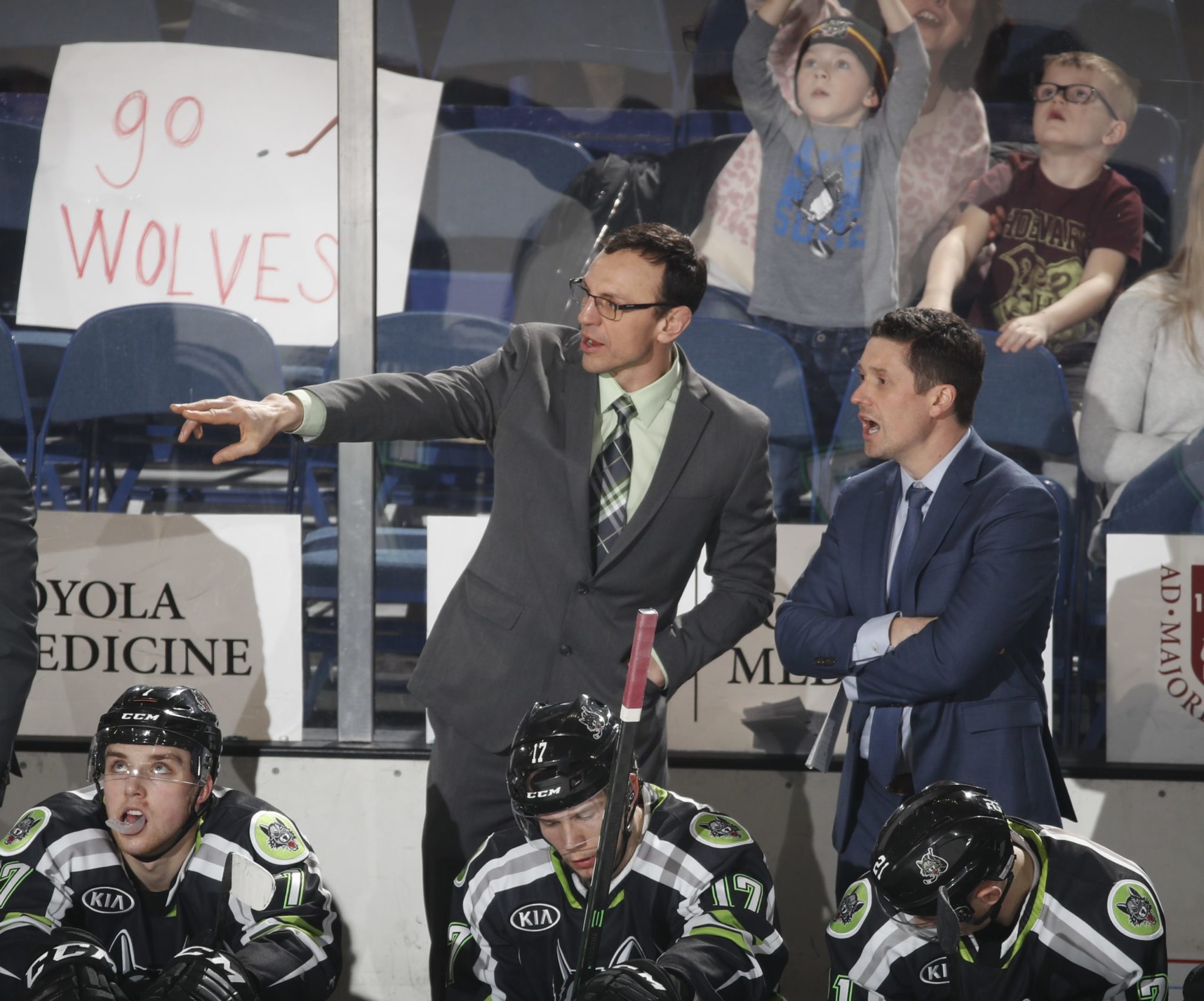San Jose Sharks
Trevor Letowski on Rocky Thompson’s Analytical Bent

Trevor Letowski was in for a surprise when he became Rocky Thompson’s associate coach in Windsor in 2015.
Consider that Letowski scored 84 goals and recorded just 209 penalty minutes in 616 career NHL games, in contrast to Thompson, who ripped off 117 PIMs in just 25 appearances.
“He really was focused on offense. That surprised me a little bit just with his playing career,” Letowski admitted. “I feel like he had to work hard to kind of shed…what people expect [from him] as a hockey person. When you work with Rocky, he’s completely different than what he was as a player.”
Thompson helmed the Spitfires for two seasons, winning the 2017 Memorial Cup, before giving way to Letowski. Meanwhile, Thompson moved onto the AHL, leading the 2018-19 Chicago Wolves to the Calder Cup Finals.
Last Thursday, Darren Dreger reported that Thompson was going up another rung:
He’s headed to San Jose to assist Bob Boughner, who is believed to have earned an extension. https://t.co/KIMWWmmJFS
— Darren Dreger (@DarrenDreger) July 16, 2020
While San Jose Sharks general manager Doug Wilson has yet to confirm this report, Dreger is as reliable a newsbreaker as there is in our industry.
With that in mind, San Jose Hockey Now reached out to Letowski, who filled us in on Rocky’s unexpected analytical bent and what he might offer the Sharks.
Sheng Peng: Rocky is thought of as a pretty innovative coach. Was there anything a little different that you can point to that he did in Windsor?
Trevor Letowski: He certainly values analytics. That was just kind of coming into play [in 2015]. Back then, I think he was a little bit ahead of the curve.
Now, everyone does their due diligence. But five years ago, it was a different, different story. He kind of set us up that way.
He had never been a head coach before. He just came in, he was very passionate and had a ton of energy.
He was extremely motivated to keep his career moving. He wanted to to win, and he wanted to keep moving, you know? And that’s what he ended up doing.
SP: You mentioned the analytics part, was there anything that he kind of honed in on in 2015? Scoring chances were getting tracked, especially high-danger ones, around then.
TL: I would say he really was focused on offense.
I think that surprised me a little bit just with his playing career. He would tell you the same thing. I feel like he had to work hard to kind of shed…what people expect [from him] as a hockey person. When you work with Rocky, he’s completely different than what he was as a player.
I know that summer, he had done a presentation at the NHL coaching clinic on creating offense off the rush. It was crossing the royal road and stuff like that.
He really wanted data on how to create offense, mostly different things in the offensive zone. He was a big believer in getting pucks up high in the offensive zone and then coming down the hill with it.
The analytics, like I said, were just in its infancy compared to what it is today. But he was certainly looking at stuff, and when he got numbers…he looked at those a lot. Even things as simple as Corsi. He cared about that stuff on a game-to-game basis, which was a little bit different than what most coaches were doing at that time.
SP: Can you elaborate on what Rocky tried to do in terms of getting the puck up high then coming down with it?
TL: Yeah, we were just kind of getting numbers up top. Having three high, causing confusion and then coming down with it. The other two players beating their men to the net.
SP: Rocky also has a rep for pulling his goalie really early. What do you remember about that?
TL: (laughs) Again, that was something, I mean he’s always kind of reading. If the analytics are saying it’s right, it doesn’t surprise me. We’d have different conversations about things like that, if that makes sense to do it and if the data is supporting that.
He didn’t do it a whole lot from what I remember in Windsor. But it doesn’t surprise me if he’s done that at the pro level.
He’s not afraid to go outside the box a little bit. If he feels it’s supported or something that he’s researched, he’ll do it.
SP: Is it fair to say that in your experience, your playing and coaching experience, that he might be the most analytically-inclined coach you’ve worked with?
TL: Yeah, he is. I’ve worked with Hockey Canada a couple of times at World Juniors, and they have a ton of resources, similar to the NHL.
But yeah, on a club team, there’s no question he is. The thing about Rocky, I think he’s always learning. He’s always trying to to stay modern. He wants to know what the latest stuff is.
SP: You already alluded to it, but what do you think Rocky will bring as an assistant coach to an NHL team?
TL: He’s gonna bring energy to any team. It’s always a little bit of different dynamic, someone as an assistant coach, compared to being a head coach. But him and Boogie have a prior relationship from Windsor.
He’s gonna look for anything that he possibly can find to give his team an edge.


















